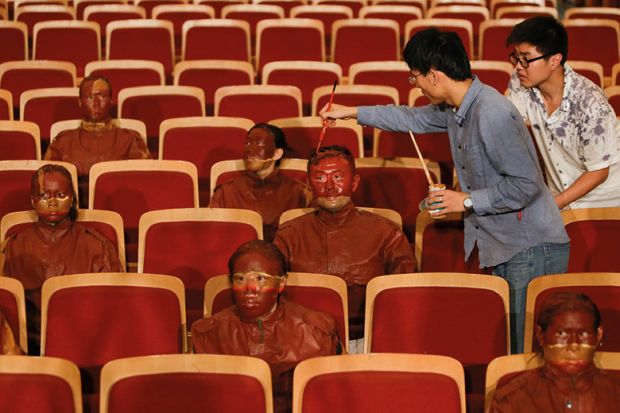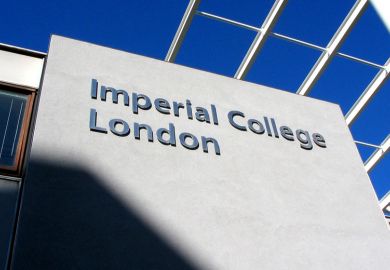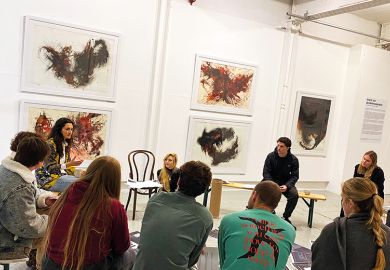When I was a university student, I learned tons. My classes were filled with passionate peers debating ideas, thinking together about the state of the world, challenging one another. Among my professors, I found generous mentors who not only shared their knowledge but modelled the art of living for me.
Having seen how transformational higher education can be, I decided to follow in their footsteps. So when I was appointed a lecturer in a Russell Group education department, I was ecstatic. Now I would be able to re-create the experiences I was lucky enough to have had for my own students.
Yet I couldn’t have been more wrong. Soon, I discovered that British academia had changed beyond recognition. The massive increase in its intake of Chinese students is not so much evidence, as managers would have it, of the UK’s competitiveness in the international higher education market as of the transformation of UK universities into unethical businesses whose pursuit of Chinese tuition fees is diluting standards to such an extent that the education they offer is becoming anti-educational.
Among the courses I taught in my first year was a master’s module about global citizenship education. All the students came from mainland China. Only two or three had the confidence to ever speak up in class, and the majority could not follow what I was saying. Virtually all had constantly to rely on translation devices.
For the first class, I asked the students to read a short book; nobody did. For the second, I assigned an academic article; no one complied. Then, a blog post; two students tried and told me they struggled. My attempts to generate discussion in class were almost always met with complete silence. Trying to stage interactive activities felt like pulling teeth.
Being a non-native speaker of English myself, I tried my best to empathise. I spoke as slowly as I could and avoided “big” academic words. By the end of the semester, I felt as if I were teaching a middle-school class. Even then, I am quite sure the students learned very little – yet they all graduated.
“The university thinks of the Chinese students as a magic money tree,” a Chinese colleague told me, echoing the claim of a January Sunday Times article that international students lacking the necessary abilities are being let in on lower-tariff routes than domestic students. That is because UK universities now lose money on educating domestic undergraduates; they can only keep many programmes going with the higher fees they can charge international students, of whom more come from China than anywhere else.
In my conversations with my Chinese students, I learned that they had not necessarily wanted to come to the UK, or to get a degree in education. But they had had no choice: getting a good job back home required a diploma from a prestigious institution, and there were only so many seats to go around on courses in China’s top universities. But UK universities’ readiness to exploit this mismatch between demand and supply sets up to fail the thousands of students they admit whose prior education has, through no fault of their own, not prepared them for what awaits them in the UK. British students also lose because they too are affected by the plummeting quality of the classroom experience. And for lecturers, trying to teach in such a system can be soul-crushing.
Many of my colleagues believe it boils down to the language barrier, so universities need to increase their language test score requirements while also providing better academic support for struggling students. Some suggest that an aversion to speaking up in class could also be caused by cultural differences.
But while language and culture are undoubtedly part of the story, the problem runs deeper. A 2023 House of Commons report pointed to the increasing activity of Chinese intelligence services on UK campuses, illustrating that academics and students have been pressured into not talking about, among other things, the Chinese pro-democracy movement. And here was I lecturing about John Dewey’s theory of democratic education to a class full of Chinese students, most of whom would return home after graduation and all of whom were likely being monitored by Chinese authorities while in the UK. How could I possibly expect them to speak up, even if their English was perfect?
Chinese students, like all international students, bring distinct perspectives that can make huge contributions to UK higher education. But to truly include them, we must confront the ideological abyss between our humanities and social science programmes – in which we stress concepts like democracy, criticality, voice and agency – and China’s totalitarianism, to which such concepts are antithetical.
Unless we are willing to let go of the criticality of our programmes, we may have to accept that it is unethical to market them to students in totalitarian countries. The alternative is to let academic rigour erode to the point that degrees from “elite” British universities will not be worth the paper they are printed on – an outcome to which we are, I am afraid, closer than we may think.
The author is a lecturer at a Russell Group university.




